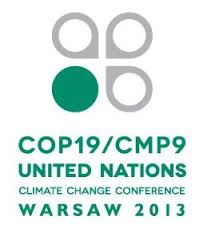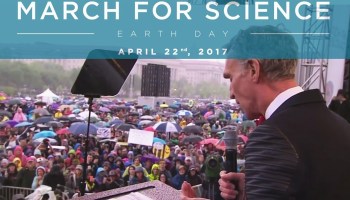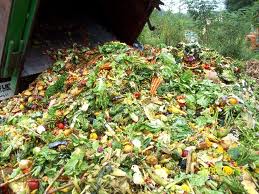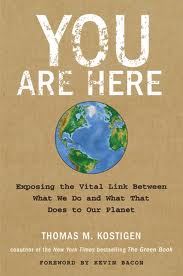Was the United Nations COP19 conference on climate change a success or failure? Let’s look at the highs and lows of the event in Warsaw over the last 2 weeks.
COP19: The Warsaw Mechanism
The ‘Warsaw mechanism’ aims to help populations most at risk from global warming impacts. These include extreme weather events like hurricanes, as well as long-term events such as rising sea-levels. Work on this agreement is set to begin next year, so at present it is just an idea with no plans or budget.
The Filipino delegate, Yeb Sano, made an emotional plea on the first day of the conference, after typhoon Haiyan devastated the Philippines. He pledged to go on hunger strike until a meaningful deal was agreed, so let’s hope that this was enough for him.
COP19: REDD+ agreement
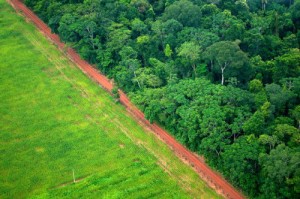 REDD stands for Reducing Emissions from Deforestation and forest degradation in Developing countries. REDD+ also tackles sustainable forestry and increasing carbon sinks in forests. The REDD+ agreement includes co-ordination and support, forest monitoring, progress reporting and estimating emission levels. It is backed by a 280 million dollar fund financed by the UK, the US and Norway.
REDD stands for Reducing Emissions from Deforestation and forest degradation in Developing countries. REDD+ also tackles sustainable forestry and increasing carbon sinks in forests. The REDD+ agreement includes co-ordination and support, forest monitoring, progress reporting and estimating emission levels. It is backed by a 280 million dollar fund financed by the UK, the US and Norway.
COP19: Help for Developing Nations
Forty-eight of the world’s poorest countries produced plans showing how they will be affected by climate change. The UN Adaptation Fund is already financing projects in these countries to help them adapt. Another 100 million pounds has been pledged to the fund by many developed countries.
Many nations, including the UK, US, Korea, Japan, Sweden and Germany, have promised more money to support developing countries. The Green Climate Fund Board is gearing up ready to start work by COP20.
The Climate Technology Centre and Network (CTCN) is up and running and is ready to give advice to developing countries on climate-tackling technology.
COP19: Walkout by Green Groups
On the last Thursday, many of the major environmental groups walked out of COP19 to protest against the lack of progress. The ‘Coal and Climate’ summit held in Warsaw at the same time as COP19, together with sponsorship by big polluters, also created a lot of upset.
COP19: Rogue nations stall the talks
Japan, Canada and Australia worked hard to hold back negotiations. Japan and Canada both backtracked on their emissions targets, whilst Australia did not send a government minister to represent them.
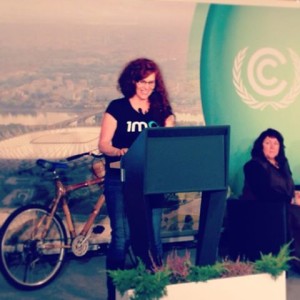 COP19: Lighthouse Activities recognized
COP19: Lighthouse Activities recognized
17 groups that are acting now to combat global warming were honored at COP19. ‘These activities shine a light on the work being done…to build a low-carbon resource efficient world,’ said the UN Secretary Christine Figueres.
Amongst them, ‘1 Million Women’ from Australia who have created a movement to encourage women to cut their carbon footprint. In Ghana, street youths are turning waste into low-carbon businesses. A group in Mexico provides financing for building low-carbon housing.
COP19: Framework for Paris 2015
A draft world climate change agreement is to be ready for review at next year’s conference in Peru. This framework sets the path for full agreement to be reached in Paris 2015. Individual countries are to increase their efforts to reduce emissions beforehand.
China argued that poorer nations were not able to make this commitment, so the agreement was watered down to countries ’who are ready’, ideally by 2015.
COP19: Must Do Better
It’s not surprising that the green groups walked out on Thursday. Once again, the power held by the big polluters is holding back real progress on climate change. The REDD+ agreement and more funds for developing countries are just more of the same. At least, the Warsaw mechanism promises some help for people hit hard by climate events, but it is only an idea at present.
So how are we doing since 1990, the baseline for the Kyoto Protocol? Greenhouse gases have increased by 61% to around 40 billion tons this year. The four worst polluters are China, the USA, the European Union and India. Greenhouse gas emissions are going down in the US and the EU whereas emissions for India and China are going up. That’s why we need to reach agreement across the world and focus our efforts on helping less developed countries.
You can make a difference… changing your habits and diet, and living a greener lifestyle does have an impact if we all work together.

